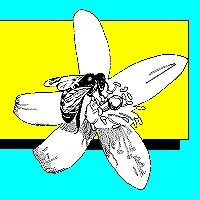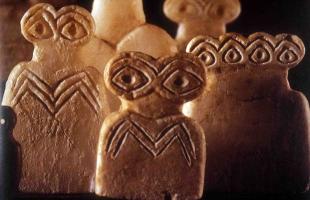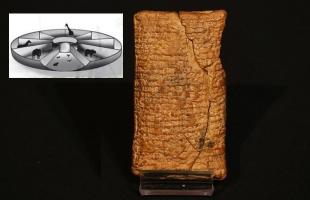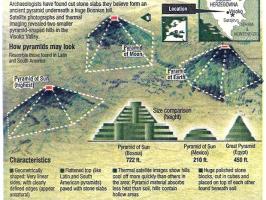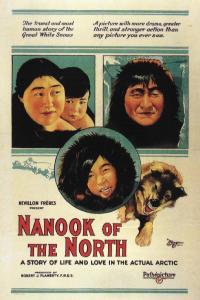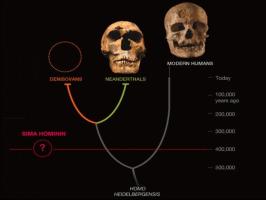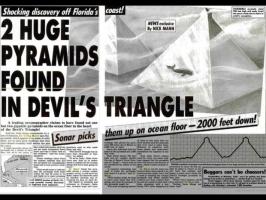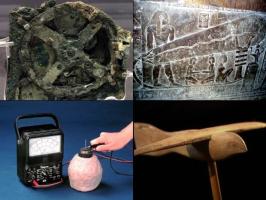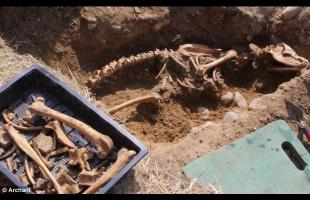APIS Volume 11, Number 9, September 1993

In this issue
- Institute Cancelled--End of an Era
- Never Say "Never"--Resistance to Fluvalinate (Italian)
- News About Miticur(R)
INSTITUTE CANCELLED--END OF AN ERA?
Florida's showcase educational event, the Beekeepers Institute, died this year. Here at the University we are still in shock. Although there have been huge changes in beekeeping, the Institute was always there, seemingly as solid as a rock, something we could count on each August to kind of wrap up the beekeeping year. As registrations came in this year, however, it became apparent that 1993 would be different. We had only twenty four full-time participants by Friday, August 6, the official deadline for early registration, with only one week to go. We needed an additional thirty to even consider making a go of it; we got one more on Monday after the decision to cancel had been made.
In order to put into perspective what happened, it is instructive to look back at the history of the Beekeepers Institute. According to Mr. John D. Haynie, authorHum of the Hive, the predecessor to this newsletter, the first Florida Beekeepers Institute was held in August, 1957 at 4-H Camp McQuarrie in Astor Park, FL with 63 persons attending. At that time, it was decided that this would be an annual event. The next year, 94 persons registered; most came from Dade, Lake and Orange counties, 22 counties in total were represented. One hundred ten attended the sixth Institute, 4-H Camp Cherry Lake, Madison, FL in 1962. The tenth Institute was held at 4-H Camp McQuarrie in 1966 with 133 in attendance. At that time, Vern Davis, Phil Packard, Arthur Brady and Ralph Wadlow were honored for ten years' perfect attendance. Significantly, Mr. Packard died early this year following Mr. Wadlow by just a few months. Mr. Wadlow last attended the institute in 1992, only two months before his death, and Mr. Packard was present in 1990.
"Honey" Haynie retired in 1971 and Dr. Dan Minnick presided over the 15th Beekeepers Institute. Dr. Minnick said in 1972, when he turned the beekeeping extension program over to Dr. Freddie Johnson, "...we asked you to let us know if you wanted to continue the Beekeepers Institute because of lack of participation (203 people representing 103 families attended the last Institute)." How this could be interpreted as "lack of participation" is difficult to understand, for this was the greatest attendance at the event that I can find and coincided with what many say was the heyday of beekeeping in Florida. "So far," Dr. Minnick concluded, "we have heard from 214 persons of 1,800." The latter figure was the number of persons at the time receiving Hum of the Hive beekeeping extension newsletter.
And the Institutes continued. Over a hundred attended the 1973 event and three more were coordinated by Dr. Johnson. In 1977, after 18 years of Beekeepers Institutes, they were replaced for two years by a beekeeping short course held on campus at the University of Florida, jointly administered by Dr. Johnson and Frank Robinson. Yours truly came on the Florida scene for the first time in 1979, invited down from the Ohio State University, to give a presentation at the second annual short course.
By popular demand, Dr. Johnson ran two more Institutes before I became extension apiculturist in 1981. We both participated in the one held that year at 4-H Camp Cloverleaf in Lake Placid, FL. I coordinated the 21st Florida Beekeepers Institute the following year at 4-H Camp Cherry Lake in 1982. This marked the beginning of participation by Dr. Alan Bolten, who was to be actively involved in this event until 1987. In 1983, the venue was 4-H Camp Cloverleaf in Lake Placid, FL, selected when acquisition of the current site, 4-H Camp Ocala was delayed.
1984 was a pivotal year. 4-H Camp Ocala became the permanent home of the Florida Beekeepers Institute. It was centrally located, and most importantly, air conditioned. Because attendance was declining, several ideas were implemented to increase participation. A brochure was sent to the APIS mailing list advertising the event. In addition, we began to offer open-hive demonstrations. Finally, the event was switched to a weekend so that more persons could attend. Previously, the Institute had been held Mondays, Tuesdays and Wednesdays, effectively eliminating many that were not full-time beekeepers. The strategy worked; that year 130 attended, the largest attendance in the 1980s!
Unfortunately, we were never able to come close to the 1984 participation again. Through the rest of the 1980s, attendance limped along, averaging about 75. It fell to an all time low of 57 in 1991, but recovered to 75 for the 1992 event, the 30th Florida Beekeepers Institute.
After Dr. Bolten departed, we invited speakers from out of state to help make up for his contributions. Without exception these speakers were well received by participants, enjoyed the 4-H camp experience immensely and were very favorably impressed with the event. Unfortunately, partly as a result of the changes implemented in 1984 (out-of-state speakers, bee hive rental, air conditioned cabins, brochures), costs began to rise dramatically. The 1981 Institute cost $16.50 per person. By 1984, the registration fee had gone to $40.00. In 1988, it reached $65.00, the advertised price this year.
Because the cost remained the same, we cannot attribute the extreme drop off in registration in 1993 necessarily to that factor. Time and again those attending have indicated that the cost was reasonable for six meals, two nights of accommodations and the beekeeping information received. Part of the answer for lackluster attendance through the 1980s and 1990s may lie in the different population the Institute now caters to.
For the traditional Florida commercial beekeeper, the event provided a chance to relax and get together with colleagues. Many of those people we all came to know and love, who showed up year after year at the Institute, are no longer with us. They have been replaced by part-timers whose energies are split between beekeeping and other activities. For them, the Institute is no longer the only logical option come the end of August each year. Though they might attend on occasion, it is impossible to come every year, and their numbers simply can't make up for the loss of the old timers. This is exacerbated by the fact that there are fewer total beekeepers as evidenced by the size of the present APIS mailing list, reduced to less than half of what it was in 1972.
In essence, there has been a paradigm shift. The old- fashioned unairconditioned, low tech, rotating 4-H camp Institute with its smoker-lighting and hive-nailing contests was replaced by the new-style Institute located permanently in one spot, featuring out-of-state speakers, open-hive demonstrations, air conditioning and video demonstrations. It, too, is apparently destined to be replaced. The question remains with what? I hope the readership of this newsletter and those that attended the Institute over the years will help me to determine what format they would like the premier beekeeping educational event in the state to take in the future.
OTHER FLORIDA EVENTS
Although the Beekeepers Institute will not be held this year, there are other opportunities for beekeepers to get together. Mr. Malcolm Bullard is coordinating an educational event September 11, 1993 in the Florida panhandle near Pensacola, FL. Details are still being hammered out, but right now both Mr. Laurence Cutts and myself are planning to be on hand. The focus is projected to be queen management; open-hive demonstrations will be featured. Cost is projected to be about $20, which includes two meals. Contact Mr. Bullard at 904/478-7690.
The Florida State Beekeepers Association will meet November 4,5, and 6 in West Palm Beach, FL. For details, contact Ms. Eloise Cutts, Executive Secretary, 2237 NW 16th Ave., Gainesville, FL 32605, ph 904/378-7719.
A unique event will take place in Jacksonville, FL Saturday, October 9, 1993. A session entitled: "Bee-Tending for Backyard Pollination" will be held at the auditorium of the Museum of Science and Industry, 1025 Museum Circle. This seminar will be for those interested in tending honey bees strictly as pollinating agents. A registration fee of $1.00 per person will be collected for the seminar along with museum admission fee of $5.00. Checks for $1.00 per person attending must be made out to the Clay County Horticulture Advisory Committee (CCHAC) and sent to P.O. Box 278, Green Cove Springs, FL 32043-0278 no later than October 6, 1993. For further details, contact Mr. Ray Zerba, Clay County Cooperative Extension Service, ph 904/284-6355.
After the bee session, stay and see the featured exhibit, "Backyard Monsters Will Really Bug You," an assortment of computerized, animatronic, 100-times life size insects and arachnids. Seating is limited and no children will be allowed in the bee tending seminar.
Finally, in January 1994, Florida is fortunate to again host the annual meeting of the American Beekeeping Federation (Jan. 18 through 23) in Orlando. Details will be forthcoming in the bee journals and this newsletter. For the latest information, contact the Secretary-Treasurer, Mr. Troy Fore, Jr., P.O. Box 1038, Jesup, GA 31545, ph/fax 912/427-8447.
NEVER SAY NEVER
It has been brought to my attention that I may have overstated the case last month concerning Varroa resistance to fluvalinate. When it comes to life, it is not wise to say "never" as many of us have learned to our dismay. In science, however, it is almost never wise to say "definite." This word raises a red flag, because there are generally a great many variables that cannot be adequately controlled in most experiments. Science is in the business of asking questions, not necessarily providing "definite" answers, one of the reasons for much of the frustration with scientists that many agricultural producers have on occasion.
Unfortunately, I did use this word in the August APIS when I said, "...a study of 72 hives which showed that definite resistance to fluvalinate (Apistan (R) strips) has shown up in northern Italy." With the aid of my Italian dictionary, I can find no evidence that the offending word was in fact used in the article. The English summary says: "The results obtained suggest tath (sic) varroa had become resistant to fluvalinate." My apologies to the author, Giulio Loglio, "Varroa jacobsoni Oud.: comparsa di resistenza al fluvalinate?" L'Apicoltore moderno, 84:7-10 (1993).
Alert readers also caught a mathematical error in last month's issue. In 1992, Florida honey production was 22,880,000 pounds. Using the 22,880 figure I reported would have meant that Florida colonies on the average produced less than a pound of honey surplus that year!
MITICUR (R) NEWS
In a letter dated August 4, 1993, Hoechst-Roussel Agri- Vet Company (HRAVC) has provided some long-sought guidance to beekeepers concerning Miticur (R). The news does not appear to be good:
"Since our investigations have not identified the cause of reactions allegedly resulting from the 300 strip packages, we have determined in an excess of caution to also instruct all beekeepers not to use Miticur (R) strips packaged in bags of 30 strips and to follow the instructions set forth below. This is in addition to the instruction that beekeepers not use strips packaged in bags of 300's.
- DO NOT TREAT COLONIES WITH MITICUR (R) PACKAGED IN 30 STRIPS PER BAG PACKAGES. Any unopened packages of 30 strips per bag of Miticur (R) or unused strips originally from packages of 30's should be stored pending further instructions from HRAVC. If you have any unopened packages of 30 strips per bag of Miticur (R) or unused strips originally from packages of 30's, please complete the enclosed Request for Reimbursement and return it immediately to HRAVC in the envelope provided (but in any event not later than August 30, 1993). We will process your request and provide you with further instructions as soon as possible. A legible copy of the original invoice must accompany the Request for Reimbursement.
- MITICUR (R) STRIPS ARE NOT REUSABLE. If you have purchased Miticur (R) packaged in 30 strips per bag packages, and have used those strips in a hive, then such strips should be disposed of in accordance with the label and not reused.
- If you have purchased Miticur (R) on behalf of other apiaries, please advice them of this correspondence and instruct them to contact HRAVC.
- Since we have been unable to identify the cause of the reported reactions, beekeepers should not use Miticur (R) (whether from bags of 30 or 300 strips) to control tracheal and varroa mites in bees. Alternate treatment regimens should be used.
HRAVC appreciates your cooperation in this matter. If you have questions with regard to these instructions concerning Miticur (R) bee strips packaged 30 strips to a bag, please call 1-800-723-6516. The Request for Reimbursement enclosed with this letter applied only to Miticur (R) strips originally packaged in bags of 30's and does not apply to any Miticur (R) strips from packages of 300's. Any inquiries concerning Miticur (R) strips from packages of 300's should be directed to NOR-AM Chemical Company at telephone number 302/892-3000."
Not specifically stated in the letter is the one burning question beekeepers have about the product. Will it continue to be marketed by the company? It would indeed be unfortunate to lose the product as an acceptable alternative to fluvalinate Apistan(R) for Varroa mite control.
Malcolm T. Sanford
Bldg 970, Box 110620
University of Florida
Gainesville, FL 32611-0620
Phone (904) 392-1801, Ext. 143 FAX: 904-392-0190
INTERNET Address: MTS@GNV.IFAS.UFL.EDU








